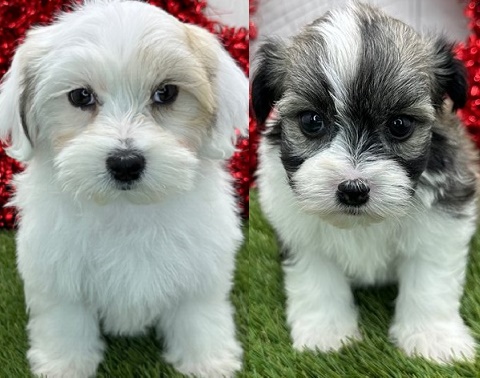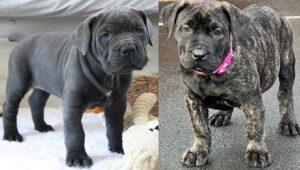Description
The Havanese dog breed, known for their charming and affectionate nature, is a delightful breed that has captured the hearts of dog lovers worldwide. Originating in Cuba, these small yet sturdy dogs have a rich history and a distinctive appearance. With their silky coats, expressive eyes, and lively personalities, Havanese dogs make fantastic companions for individuals and families alike. This article will delve into the background, characteristics, care, and training requirements of the Havanese breed, providing you with valuable insights to help you understand and appreciate these wonderful dogs.
1. Introduction to the Havanese breed
Origins and history of the Havanese breed
The Havanese breed is not just a fancy name for a new type of coffee. These adorable little dogs actually have a rich history that dates back centuries. Originating in Havana, Cuba, the Havanese breed has been a beloved companion to many people throughout the years. They were even popular among the Cuban aristocracy and played a role in the country’s culture.
Popularity and recognition of the Havanese breed
Move over Kardashians, because the Havanese breed is giving you a run for your money in terms of popularity. These charming dogs have gained quite a following in recent years and are now recognized by various kennel clubs around the world. Their small size, fluffy coats, and friendly personalities have endeared them to many dog lovers, making them a popular choice for families and individuals alike.
2. History and origins of the Havanese
The Havanese in Cuba
Ah, the Havanese in Cuba, where they were treated like royalty. These pint-sized pooches were adored by the Cuban upper class and were often found strutting their stuff in the glamorous palaces of Havana. They were loyal companions and were even used as a form of currency between wealthy families. Move over dollars, it’s raining Havanese!
Influence of European and other dog breeds
As it turns out, the Havanese breed didn’t just stay in Cuba sipping on mojitos. They made their way to Europe, where they rubbed elbows with various other dog breeds. This crossbreeding resulted in a unique mix of characteristics that we see in Havanese today. So, you could say that these dogs have a little bit of European sophistication mixed with their Cuban charm.
3. Physical characteristics and appearance
Size and weight
When it comes to size, the Havanese is like the Goldilocks of the dog world. Not too big, not too small, they’re just right. These dogs generally weigh between 7 to 13 pounds, making them the perfect cuddle buddies for both adults and children alike.
Coat type, colors, and patterns
If you’re a fan of fluffy dogs, then the Havanese is sure to tickle your fancy. Their coat is soft, silky, and often compared to a cloud. It comes in a variety of colors, including white, cream, black, and even different shades of brown. With their colorful coats, these dogs are like walking works of art.
Distinctive facial features
Move over supermodels, because the Havanese breed has got some seriously striking facial features. They have expressive eyes that can melt your heart in an instant, and their noses come in different shades to match their coat colors. With those adorable features, it’s no wonder people can’t resist giving them a cuddle or two.
4. Temperament and personality traits
Playful and sociable nature
If the Havanese were in a yearbook, they would be voted “Most Popular” and “Class Clown” all in one. These dogs have a playful and sociable nature that makes them the life of the party. They love nothing more than spending time with their human companions, whether it’s playing games or just hanging out on the couch binge-watching their favorite shows.
Affectionate and loyal companionship
When it comes to loyalty, the Havanese breed takes the cake. These dogs are known for their unwavering devotion to their owners and will stick by your side through thick and thin. They are always ready to offer a cuddle, a lick, or a wag of their tail to brighten your day. Who needs therapy when you have a Havanese?
Adaptability to different environments
Whether you live in a bustling city or a quiet countryside, the Havanese breed is ready to adapt to any environment. They are versatile little dogs who can thrive in various living situations, as long as they have their human pals by their side. So, whether you’re a city slicker or a country bumpkin, the Havanese is the perfect companion for you.
Now that you’re armed with all this Havanese knowledge, go forth and spread the word about these delightful little dogs. They may be small in size, but they’re definitely big on personality and charm.
5. Proper care and grooming requirements
Diet and nutritional needs
Feeding your Havanese a balanced and nutritious diet is essential for their overall health and wellbeing. Opt for high-quality dog food that is specifically formulated for small breeds. Consult with your veterinarian to determine the appropriate portion sizes and feeding schedule based on your Havanese’s age, weight, and activity level. Remember, treats should be given in moderation to avoid any weight gain or health issues.
Exercise and activity levels
While Havanese dogs are small, they still require regular exercise to stay happy and healthy. Despite their size, they have a surprising amount of energy to burn. Daily walks, playtime, and interactive toys will help them stay mentally and physically stimulated. Aim for at least 30 minutes to an hour of exercise each day, but be mindful of their limitations due to their small size and avoid overexertion.
Grooming routines and maintenance
One of the distinct features of Havanese is their long, luxurious coat. Regular grooming is necessary to keep their fur looking its best. Brush their coat at least two to three times a week to prevent matting and tangling. Additionally, their hair might need occasional trimming to maintain a neat appearance. Regularly check their ears for any signs of infection or excessive wax buildup, and brush their teeth regularly to maintain good oral hygiene.
6. Training and socialization for Havanese dogs
Key training techniques for Havanese
Havanese dogs are generally intelligent and eager to please, making them relatively easy to train. Positive reinforcement techniques, such as rewards, praise, and treats, work best with this breed. Use consistent commands and be patient, as they may have a stubborn streak. Early socialization and basic obedience training are crucial to ensure a well-rounded and well-behaved Havanese.
Socialization with humans and other pets
Havanese dogs are known for their friendly and sociable nature. It’s important to expose them to various people, situations, and other animals from a young age to ensure they grow up to be confident and well-adjusted. Encourage positive interactions with humans and other pets to prevent any potential behavioral issues that may arise from fear or anxiety.
Addressing behavioral issues
Like any other breed, Havanese dogs may develop certain behavioral issues. Separation anxiety, excessive barking, and resource guarding are a few examples. Consistency, positive reinforcement, and proper training techniques can help address and correct these behaviors. If the issues persist or become unmanageable, consult a professional dog trainer or behaviorist for guidance and support.
7. Common health issues and veterinary care
Genetic predispositions and breed-specific health concerns
While Havanese dogs are generally healthy, like any other breed, they may be prone to certain genetic predispositions and breed-specific health concerns. Some of these include hip dysplasia, patellar luxation, cataracts, and progressive retinal atrophy. Regular check-ups with a veterinarian and appropriate health screenings can help detect any potential issues early on.
Regular check-ups and vaccinations
Routine veterinary care is crucial in maintaining your Havanese’s health. Schedule regular check-ups to ensure they are up to date on vaccinations, receive necessary preventative treatments for parasites, and undergo any recommended health screenings. Your veterinarian can guide you on the appropriate vaccination schedule and provide advice on preventive care specific to your Havanese.
Managing common health issues in Havanese
While it’s impossible to prevent all health issues, there are steps you can take to minimize the risk and manage any common health concerns. Maintaining a healthy diet, regular exercise, and grooming routines can contribute to their overall well-being. It’s important to recognize any signs of discomfort or changes in behavior and seek prompt veterinary care when necessary. Early intervention can often lead to more successful treatment outcomes.
8. Choosing a Havanese puppy or adult dog
Researching reputable breeders
When looking for a Havanese puppy, it’s essential to research and find reputable breeders who prioritize the health and temperament of their dogs. Visit the breeder’s facility if possible to observe the living conditions and meet the puppies’ parents. Ask for health clearances and references from previous customers to ensure you are getting a healthy and well-bred Havanese.
Considerations when adopting an adult Havanese
Adopting an adult Havanese can be a rewarding experience. Consider the dog’s history, temperament, and any potential behavioral or health issues before making your decision. Spend time getting to know the dog and ensure that they are a good fit for your lifestyle and household. Adult Havanese can be just as loving and loyal as puppies, and you may even be saving a life by adopting them.
Preparing your home for a new Havanese
Before bringing your new Havanese home, make sure your living environment is safe and suitable for a small dog. Remove any potentially hazardous items, secure loose cables or wires, and create a designated area with comfortable bedding and toys for your Havanese to relax and sleep. Stock up on necessary supplies such as food, water bowls, grooming tools, and a secure collar or harness for walks. And most importantly, get ready for a lifetime of love, laughter, and Havanese hijinks!
In conclusion, the Havanese breed offers a perfect combination of charm, intelligence, and companionship. Whether you are captivated by their adorable looks, their playful personalities, or their unwavering loyalty, Havanese dogs make for delightful companions. By understanding their history, physical traits, and care requirements, you can ensure that your Havanese receives the love, attention, and care they deserve. So, if you’re looking for a loving and affectionate furry friend, consider welcoming a Havanese into your home, and enjoy the years of joy and happiness they bring.
FAQ
1. Are Havanese dogs good with children?
Yes, Havanese dogs are generally known for their gentle and friendly nature, making them great companions for children. They are patient, tolerant, and love to play, making them an excellent choice for families with kids.
2. Do Havanese dogs require a lot of grooming?
Yes, Havanese dogs have long, silky coats that require regular grooming to prevent matting and keep their fur looking beautiful. Daily brushing, regular bathing, and occasional professional grooming sessions are necessary to maintain their coat’s health and appearance.
3. Are Havanese dogs hypoallergenic?
While no dog is completely hypoallergenic, Havanese dogs are considered a good choice for individuals with allergies. They have hair instead of fur, which reduces the amount of dander they produce. However, it’s always recommended to spend time with a Havanese dog to see if you have any allergic reactions before bringing one home.
https://www.myfurryfriends.me/adopt-puppies?gad_source=1&gclid=Cj0KCQiAhomtBhDgARIsABcaYymWPIKl5kWkMXhUPEDP_ACpqS3SJgL2bsFwnU8FsbqNI0Oyu6q0w9YaAux0EALw_wcB
https://en.wikipedia.org/wiki/Puppy
https://en.wikipedia.org/wiki/Dog
https://en.wikipedia.org/wiki/Dog_breed
https://dogs.ie/
https://www.nextdaypets.com/directory/dogs/sale/
https://www.lancasterpuppies.com/
https://www.puppies.co.uk/
https://www.europuppy.com/
https://www.pets4homes.co.uk/sale/puppies/
https://www.puppyspot.com/puppies-for-sale
https://www.pups4sale.com.au/
https://petsforhomes.com.au/puppies-dogs-for-sale/
https://puppies.com/
https://www.freeads.co.uk/uk/buy-sell/pets/dogs/
https://www.gumtree.com/pets/pets-for-sale/dogs/uk/srpsearch+puppies
https://www.preloved.co.uk/classifieds/pets/dogs
https://www.marshallspetzone.com/196-pups-and-kittens
https://www.ukpets.com/dogs-for-sale
https://www.petfinder.com/dogs-and-puppies/adoption/finding-a-dog/puppies-for-sale/
https://marketplace.akc.org/puppies
https://waratahpuppies.com.au/puppies-and-dogs-for-sale/
https://petclassifieds.com/ad_category/dogs/
https://puppyfinder.com/
https://www.petmd.com/dog/general-health/teacup-dogs-puppies
https://www.thesprucepets.com/cute-teacup-dog-breeds-4587847
https://www.dailypaws.com/living-with-pets/pet-compatibility/cutest-puppies
https://www.goodhousekeeping.com/life/pets/g4531/cutest-dog-breeds/
https://www.canadapups.com/
https://www.ckc.ca/Choosing-a-Dog/PuppyList/Default.aspx
https://getapuppy.ca/
https://www.kijiji.ca/b-dogs-puppies/canada/c126l0




